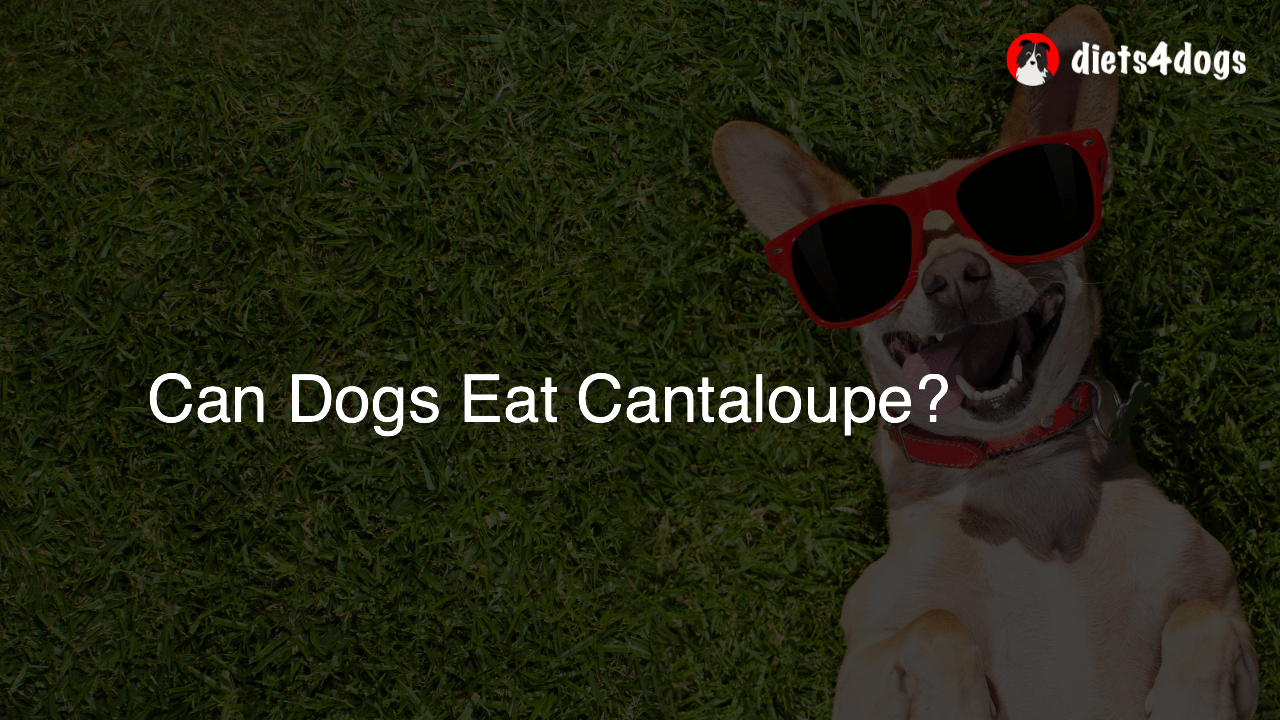Dogs are some of the most beloved members of our families, and it’s important to ensure that they are receiving the best nutrition possible. While most of us are familiar with the basics of what we should and should not feed our canine companions, many of us are unsure about whether or not they can eat certain fruits and vegetables. One of the most common questions that pet owners have is whether or not dogs can eat cantaloupe. This blog post will explore the potential benefits and drawbacks of feeding your pup this delicious melon.
Can dogs eat cantaloupe?
Yes, dogs can eat cantaloupe as long as it is properly prepared. Cantaloupe should be cut into small cubes or slices and served without the rind, seeds, or any other inedible parts. The cantaloupe should also be washed thoroughly to remove any dirt, pesticides, or other contaminants before giving it to your dog.
Cantaloupe is a healthy snack for dogs, as it is a good source of vitamins A and C, as well as fiber. It is also low in calories and fat, making it a great snack for dogs who are trying to maintain a healthy weight.
Should dogs eat cantaloupe?
Yes, in moderation, cantaloupe can be a healthy snack for dogs. As with any food, it is important to monitor your dog’s reaction to cantaloupe and to make sure they do not eat too much. Too much cantaloupe can cause digestive issues in dogs, so it is best to give it in small amounts.
It is also important to note that cantaloupe should not replace a balanced diet for your dog. It should only be used as an occasional snack or treat.
Is it safe for dogs to eat cantaloupe?
Yes, cantaloupe is safe for dogs to eat as long as it is prepared properly. Cantaloupe should be cut into small cubes or slices and served without the rind, seeds, or any other inedible parts. The cantaloupe should also be washed thoroughly to remove any dirt, pesticides, or other contaminants before giving it to your dog.
Cantaloupe is a healthy snack for dogs, as it is a good source of vitamins A and C, as well as fiber. It is also low in calories and fat, making it a great snack for dogs who are trying to maintain a healthy weight.
Can cantaloupe be toxic to dogs?
No, cantaloupe itself is not toxic to dogs. However, it is important to note that too much cantaloupe can cause digestive issues in dogs, so it is best to give it in small amounts. Additionally, the rind, seeds, and other inedible parts of the cantaloupe should not be given to dogs, as these can cause digestive issues or even blockages.
Can dogs eat cantaloupe in moderation?
Yes, cantaloupe can be a healthy snack for dogs in moderation. As with any food, it is important to monitor your dog’s reaction to cantaloupe and to make sure they do not eat too much. Too much cantaloupe can cause digestive issues in dogs, so it is best to give it in small amounts.
It is also important to note that cantaloupe should not replace a balanced diet for your dog. It should only be used as an occasional snack or treat.
Is there any circumstance where cantaloupe is/are not safe for dogs to eat?
Yes, there are certain circumstances where cantaloupe is not safe for dogs to eat. The rind, seeds, and other inedible parts of the cantaloupe should not be given to dogs, as these can cause digestive issues or even blockages. Additionally, dogs should not eat cantaloupe that has been contaminated with dirt, pesticides, or other contaminants.
It is also important to note that cantaloupe should not replace a balanced diet for your dog. It should only be used as an occasional snack or treat.
The Bottom Line on Feeding Dogs Cantaloupe
Cantaloupe can be a healthy and tasty snack for dogs in moderation. It is a good source of vitamins A and C, as well as fiber, and is low in calories and fat. However, it is important to ensure that it is properly prepared and not contaminated with dirt, pesticides, or other contaminants. Additionally, the rind, seeds, and other inedible parts of the cantaloupe should not be given to dogs, as these can cause digestive issues or even blockages. Ultimately, cantaloupe should not replace a balanced diet for your dog, but can be used as an occasional snack or treat.












